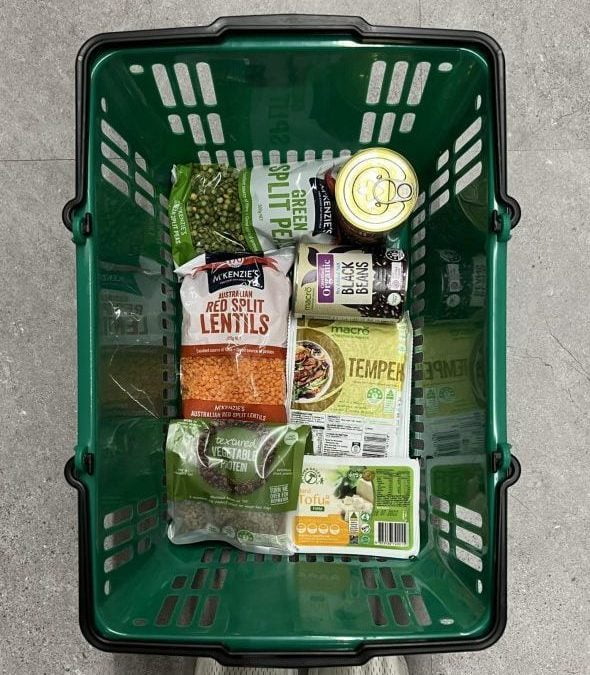Reducing your meat intake can benefit you health, save you money, help the animals and protect the planet.
If you want to reduce your meat intake, you need to make sure you are replacing meat with the right plant-based alternatives to ensure you meet your nutrition requirements like protein and iron.
Here are 7 plant-based meat alternatives you can use in place of meat:
- Tofu – also known as bean curd, tofu is a versatile meat alternative made from condensed soy milk pressed into solid blocks. Tofu comes in different grades of firmness from silken to extra firm and will take on the flavour of whatever it’s seasoned or cooked with. With 12 grams of protein per 100 grams, tofu can replace meat in stir fries, grills, on burgers, in salads and can even be added to smoothies or desserts for a more texture rich finish.
- Tempeh – not to be confused with tofu, tempeh is also a soy product, but made from cooked and fermented whole soybeans. Tempeh is a great source of protein (~19 grams per 100gram serve), as well as prebiotics and minerals like iron, magnesium and calcium, and it is low in sodium. If you haven’t tried tempeh before, it has a mildly earthy taste, hearty chewy texture and can readily take on the flavour of nearly any dish which makes it a great replacement for meat in stir-fries, bakes, soups and grills.
- Lentils – rich in essential nutrients including protein (~7 grams of protein per 100 gram serve), dietary fibre, and a range of vitamins and minerals, lentils are a healthy and cost-effective plant-based alternative to meat. Lentils come in several varieties including yellow, red, green and French, and with their earthy nutty flavour can be used in soups, pasta dishes, curries, burgers, salads and as a filling side dish.
- Black Beans – although slightly less protein (~6.5 grams per 100 gram serve) then some other plant-based meat alternatives, black beans are still a good meat alternative, especially when combined with another plant based protein source. Black beans also contain fibre and minerals like iron, and can be enjoyed in salads, burger patties, tacos and even brownies. Other beans like kidney beans, fava beans and cannelloni beans can also be used.
- Seitan – made from gluten, the main protein in wheat, seitan has a meaty texture and can be used in stir frys, bakes, on a sandwich in place of deli meat, and added to salads or tacos. While high in protein (an incredible 75 grams per 100 gram serve), seitan can be high in sodium and as it contains gluten, it’s not suitable for those with coeliacs disease.
- Peas – a source of protein, fibre and essential vitamins and minerals, peas can be used as a plant based meat alternative for vegans and vegetarians. With 6.6 grams of protein per serve, peas are best combined with another plant based protein source when replacing meat, but can be eaten whole, sautéed, added to curries, or tossed through salads and pasta.
- Chickpeas – also known as garbanzo beans, chickpeas are a small yet nutritious legume that contains protein, fibre and essential minerals. With a similar protein content to peas, they are best consumed in combination with another plant protein source when replacing meat and can be used within salads, soups, casseroles, curries, made into falafels, fritters and burgers, and eaten whole as a side dish and snack.
If you’re looking for easy, healthy recipes to help you reduce your meat intake, click here.


I have been following many of your ‘Best Plant-Based Meat Alternatives’ options for a few months now and am feeling healthier as a result. Thank you for sharing your wisdom!
Great detailed information. Looking forward to incorporating lots of these ideas into our family menu!